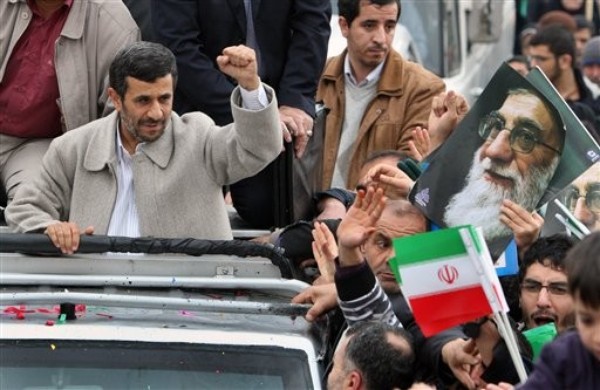Iran and the Islamist menace

Charles Krauthammer lays out a series of principles he believes the U.S. should adhere to in micro-managing supporting freedom in the Middle East. The list itself is rather anodyne but the rationale looks rather problematic:
We are, unwillingly again, parties to a long twilight struggle, this time with Islamism - most notably Iran, its proxies, and its potential allies, Sunni and Shiite. We should be clear-eyed about our preferred outcome - real democracies governed by committed democrats - and develop policies to see this through.
One thing that's important to keep in mind when reading geopolitical advice of this sort is to recognize that during the 1990s, when al-Qaeda was metastasizing, Krauthammer et. al. were more concerned with Saddam Hussein. Having misread the Sunni jihadist threat in favor of a state-based menace, we're now told that Iran represents the head of the Islamist menace. And again, it's wrong.
The signature Islamist threat to the United States does not come from Iran but from Sunni groups aligned with or fighting under the banner of al-Qaeda. Those groups may or may not be helped by the rise of the Muslim Brotherhood in Egypt, but Iran is neither here nor there. It's the Sunni groups with the demonstrated willingness and capacity to travel into the United States to slaughter innocent people. They're the ones attempting to kill Western civilians with toner cartridge bombs. They're the ones attacking mosques and military bases inside Pakistan. This is not a movement controlled by Iran - it's laughable to even suggest that when Pakistan, the outright sponsors of Sunni terrorism, can't even reign in all of its various tentacles.
Yes, Iran may fund or arm portions of this movement to bloody the U.S. in Afghanistan and Iraq, but that's a far cry from trying to use them as the tip of a global Islamist spear against the United States. These groups view Iran and Shia Islam in general as apostate, which is why they've gone to great lengths in both Iraq and Pakistan to butcher Shiites.
Iran poses a geopolitical challenge to U.S. influence in the Middle East. Al-Qaeda wants to kill you. One can make a solid case that American foreign policy needs to be more concerned with the former, but conflating the two isn't helpful.
(AP Photo)











